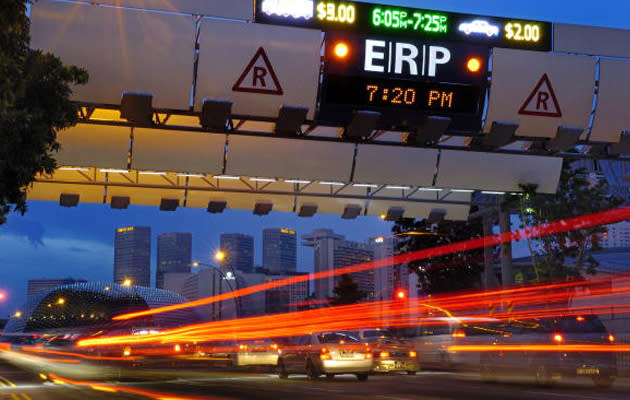COMMENT: Why the COE and ERP show no love for the common man

Benjamin Chiang is an enthusiast of good advertising, deep thinking, labour issues and chocolate. He also works for the National Trades Union Congress and writes at www.rangosteen.com. The views expressed are his own.
It takes a cold, cold heart to be able to appreciate vehicle policies in Singapore.
In pragmatic terms, the COE and ERP systems have been effective in preventing rocketing vehicle growth and kept traffic congestion in control. Yes, you won't agree but it's true.
If you discuss theories such as aggregate responses to demand elasticities, you can prove our roads are effectively managed.
Statistically speaking, it would not be wrong to say our roads are under utilised even. At present, roads occupy 12% of Singapore's land space -- I was told that this is almost maximum capacity.
Vehicle Quota is such an effective system that Shanghai, Beijing and Guangzhou have implemented versions of it (including auction and lottery) to control their roads with varying degrees of success.
But China has one luxury that we do not -- their leaders don't need to be publicly elected.
The common person doesn't understand the concept of pricing, demand and supply. All he knows when he drives through the ERP is that the LTA is getting "richer" with each "beep". When he hears of the latest COE prices, he can only frustratingly compare it against his salary.
This country was founded on pragmatism. We would have no qualms digging up ancient graves to be replaced by an expressway. We have no problem demolishing a beloved library for motorists to save two minutes of travel time. It is logical, it is practical and you just could not argue against these decisions.
And that is the problem with the COE and ERP -- they are policies with no love for the common man.
The ERP system collected some S$97m worth of revenue for the taxman in 2011.
Though not a lot in national terms (income tax was around S$7 billion the same year, contrast that with the $4.3 billion the MCE cost to build), it is very, very difficult to reconcile these facts with public angst. You can't blame the taxi uncle for telling his passengers the LTA has been profiteering off the people.
On Monday, LTA announced shorter three-month COE reycling periods and revealed further COE quota cuts for the next window. My fear is that technocrats would continue using pricing models to restrain vehicle growth further.
New policies should be designed with delicate consideration to public sentiment on top of economic efficiency.
For instance, if Vehicle Quotas have already been set, it might be worthwhile to consider reigning in some control of price rather than let the market decide. Afterall, the market will always work in the rich man's favour.
When one pays so much for a car, it is difficult to brush away feelings of anger whenever one is faced with traffic congestion.
Especially if this person is a middle-class Singaporean working so hard to pay for a small bit of convenience.
Related stories:
COMMENT: Housing foreign workers offshore not the way
COMMENT: Will 2014 be 'breakthrough' year of the low wage workers?

